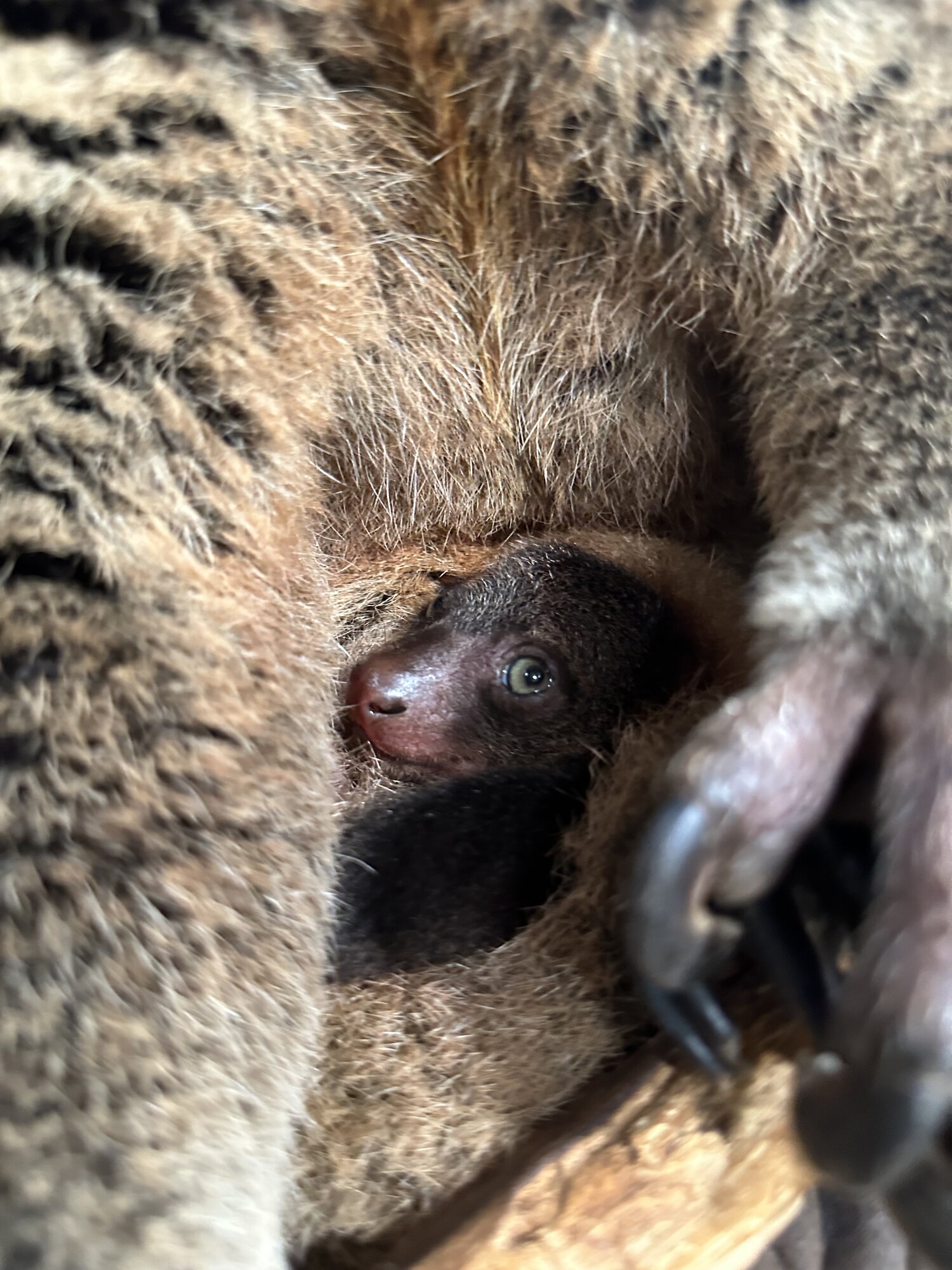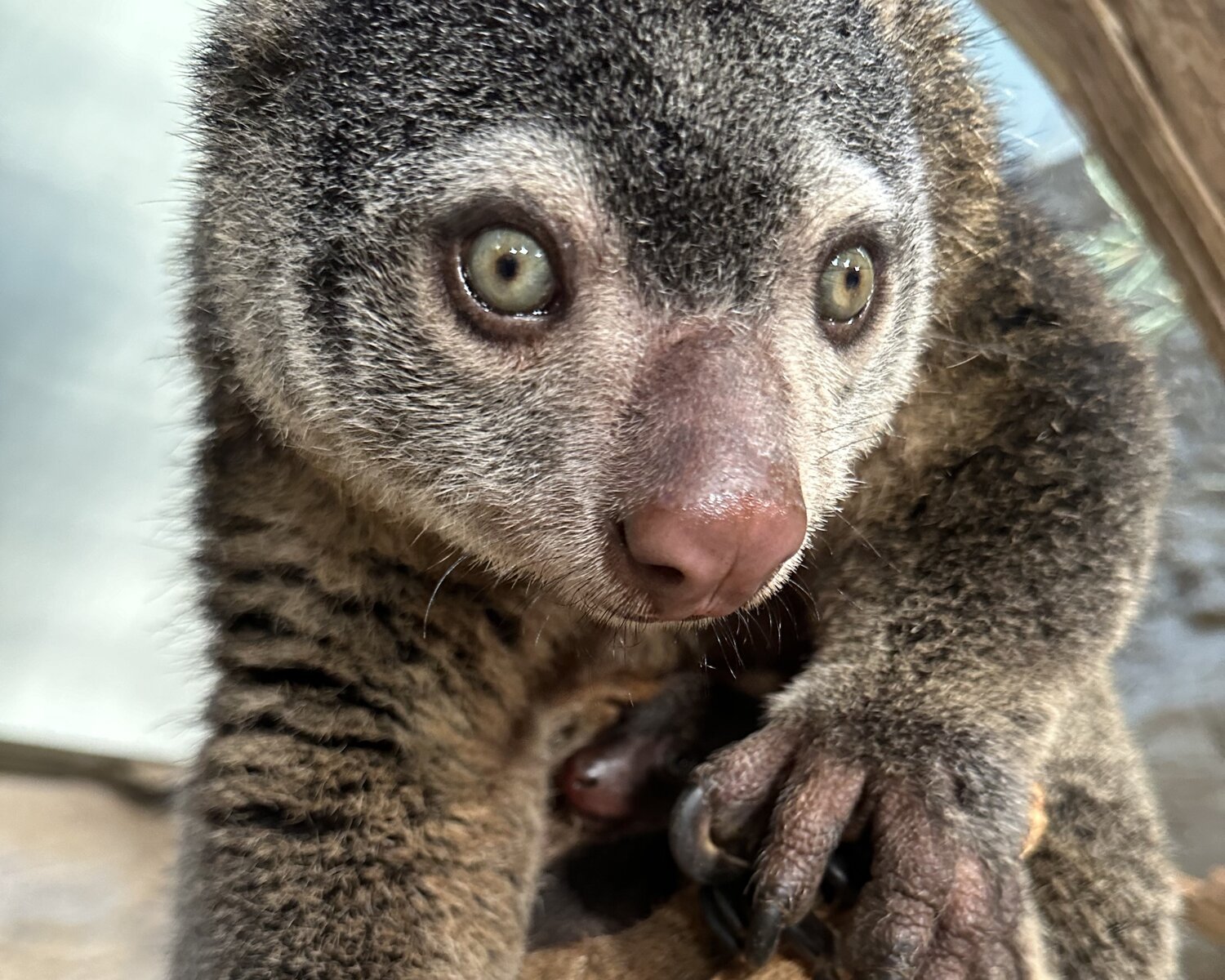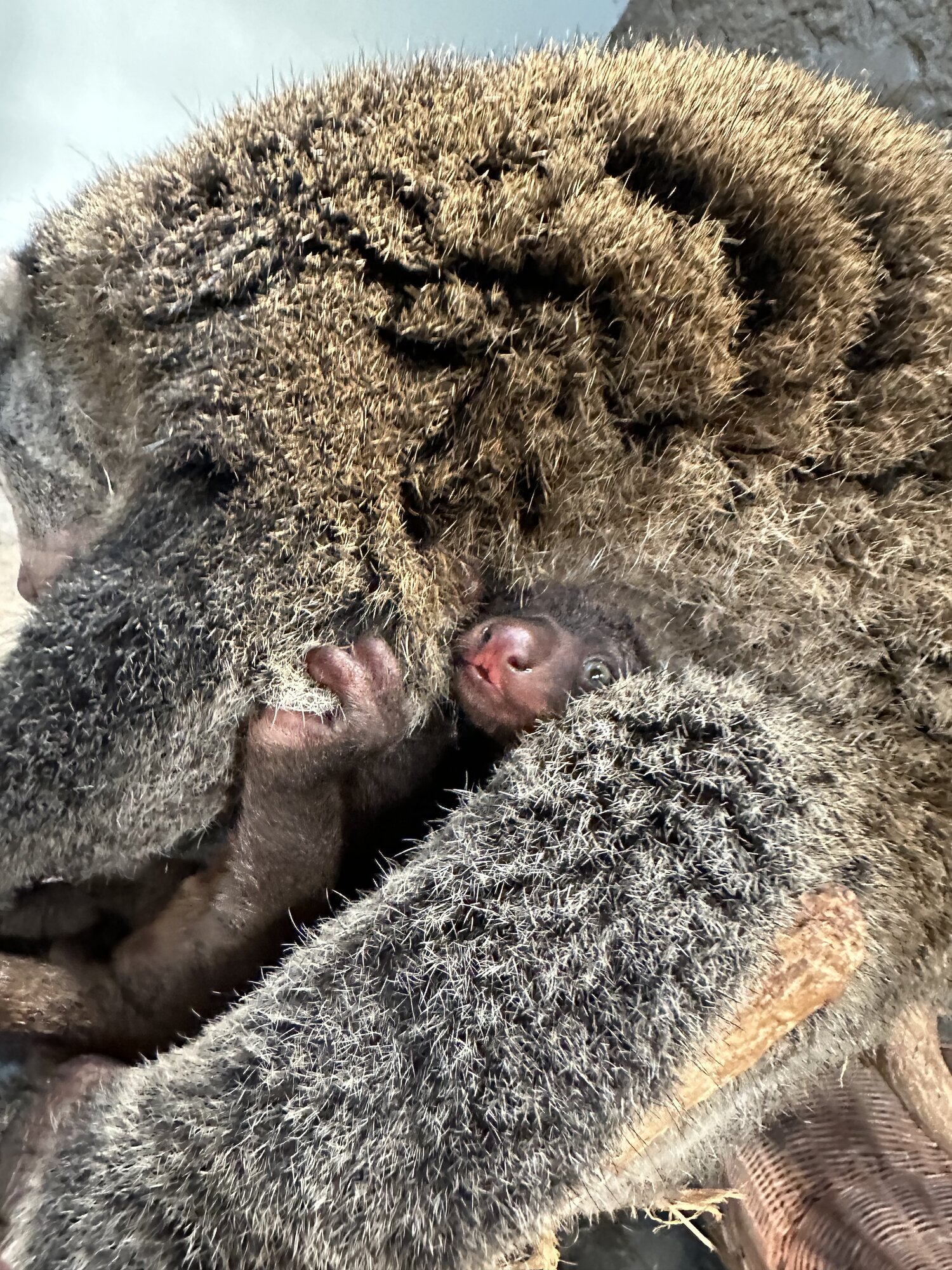Two years after their move to the German capital from a Polish zoo, the bear cuscuses at Tierpark Berlin have once again welcomed a new baby. The birth of a joey of this marsupial species, which is endemic to the Indonesian island of Sulawesi, is something of a sensation as this is only the second bear cuscus ever born in Germany! The young animal is developing splendidly and, with a little luck, can already be spotted by visitors to the Rainforest House.
Currently, the baby is spending most of its time in its mother’s pouch, occasionally peeping out cautiously with its large, hypnotic eyes. Mother Duza (9) stays in constant physical contact with her joey, which is now estimated to be about five months old.
Bear cuscuses are a rarity in zoological gardens, and Tierpark Berlin hopes to contribute valuable knowledge about how the obscure animals rear their young. “Very little is known about the bear cuscus,” says Zoo and Tierpark Director Dr Andreas Knieriem. “We are therefore observing the behaviour of our little family very closely, documenting the young animal’s development and how its mother is taking care of it. And, of course, we are keeping our fingers crossed that the joey will make it through this critical early phase without any problems. That being said, it is important that we keep our distance and leave all care of the joey up to its mother. Therefore, we have not yet determined its size, weight or sex.” As is the case for all marsupials, baby bear cuscuses are born in an immature state and complete the rest of their development while still safely ensconced in their mother’s pouch. Only when fully developed does the youngster emerge and explore its surroundings. But if danger threatens or there is any disturbance, the joey instantly seeks refuge back in the pouch.
The new baby is a sign of hope for the species and a milestone in the Tierpark’s mission to protect and conserve endangered species. Tierpark veterinarian Anja Hantschmann has been the coordinator for this species within the European Endangered Species Programme since 2023 and is naturally excited about the new arrival: “The bear cuscus is endemic to the Indonesian island of Sulawesi and its offshore islands. It is threatened by the destruction of its forest home, but also by poaching. Although Indonesian law protects the species, its numbers in the wild are decreasing. The birth of this juvenile is therefore an important step in ensuring the survival of the rare species.” Mother and child bear cuscuses stay together for about eight months until the joey finally begins to explore independently. The Tierpark’s female Duza and male Garrett already produced a joey last year, who was named Dolly. She is now weaned from her mother but is still living at Tierpark Berlin.
The bear cuscus feeds predominantly on young leaves and is known for its languorous movements – a result of the rare marsupial’s low-energy diet. Other leaf-eating animals such as sloths and koalas take a similarly slow-paced approach to life. Bear cuscuses spend much of their day resting or sleeping. When awake they can usually be found grooming or foraging for food. Unlike other climbing marsupials, bear cuscuses are not loners: they often live in pairs or groups of several individuals.
In the wild, the bear cuscus is only found on the Indonesian island of Sulawesi and its offshore islands. Animal and plant species found exclusively in a certain geographical area and nowhere else on Earth are described as “endemic”. Such species are adapted to the very specific conditions of their more limited natural range, which makes them especially vulnerable to changes in their environment.


